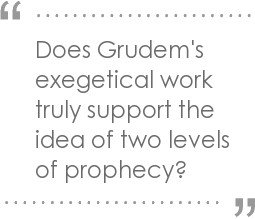Myths About Spiritual Gifts: #4 "I Can't Help . . . I Don't Have that Gift"

Romans 12:6-8 describes eight gifts: prophecy, serving, teaching, exhorting, giving, leading, and mercy. 1 Corinthians 12:8-10 lists nine manifestations of the Spirit: word of wisdom, word of knowledge, faith, gifts of healing, miracles, prophecy, distinguishing of spirits, tongues, interpretation of tongues. Verse 28 adds eight appointments: apostles, prophets, teachers, miracles, healings, helps, administrations, and tongues. 1 Peter 4:11 mentions only two gifts: speaking and serving.
We know that every believer has the Spirit of God (Rom 8:9; Eph 1:13-14), that “we have gifts that differ” (Rom 12:6), that to “each one is given a manifestation of the Spirit” (1 Cor 12:7), and that “each one has received a special gift” (1 Pet 4:10). We also know that while identifying one’s spiritual gifts(s) with certainty is not required and may not even be entirely possible, the Spirit’s giving and manifesting is not at all irrelevant. These gifts are designed to play an important role in the church. After all, they are deliberately tasked means designed to work toward one vital end: “so that in all things God may be glorified through Jesus Christ, to whom belongs the glory and dominion forever and ever. Amen” (1 Pet 4:11b). If their purpose is His glory, then ignoring them is not an option.
But if a person is, for example, fairly certain that they have been gifted with teaching, then what are they to do when faced with a different ministry opportunity having little or nothing to do with teaching? What if there is a financial need in the church that the “teacher” is aware of and has the means to help resolve. Can he claim that he is only to function as a teacher, and hasn’t got the gift of helps? Does this absolve him of any responsibility toward the needy family? 2 Corinthians 8:14 describes the purpose of abundance as for supplying needs (without any reference to spiritual gifting, by the way). Paul adds in 9:8 a broader purpose statement for abundance: “…always having all sufficiency in everything, you may have an abundance for every good deed.” Every good deed implies that one’s work and service is to extend beyond personal spiritual gifting, though a case could be made that all gifting—including God’s provision of material wealth—is spiritual gifting.
 Read
Read  Read the
Read the 
 So far in this study of cessationism (Part 1, Part 2, Part 3), we have considered the what question and the when question. Per the what question, cessationists conclude that what took place in the New Testament (with regard to the miraculous gifts) is not happening in the church today—even if charismatics are using biblical terminology to refer to non-biblical practices.
So far in this study of cessationism (Part 1, Part 2, Part 3), we have considered the what question and the when question. Per the what question, cessationists conclude that what took place in the New Testament (with regard to the miraculous gifts) is not happening in the church today—even if charismatics are using biblical terminology to refer to non-biblical practices. Did all the miraculous gifts of the Spirit, such as tongues and prophecy, cease with the completion of the New Testament? If we take the position that prophecy continues in some form, is such a view compatible with the conviction that God has given us all the authoritative revelation He intended to give (that the the canon of Scripture is closed)?
Did all the miraculous gifts of the Spirit, such as tongues and prophecy, cease with the completion of the New Testament? If we take the position that prophecy continues in some form, is such a view compatible with the conviction that God has given us all the authoritative revelation He intended to give (that the the canon of Scripture is closed)? Originally published as a single article: “Tongues—Are They for Today?,”
Originally published as a single article: “Tongues—Are They for Today?,” 
Discussion